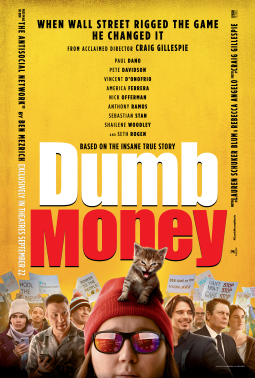Being Julia
Posted on October 29, 2004 at 4:02 am
A-| Lowest Recommended Age: | Mature High Schooler |
| Profanity: | Some strong language |
| Nudity/ Sex: | Explicit sexual references and situations, adultery |
| Alcohol/ Drugs: | A great deal of drinking and smoking |
| Violence/ Scariness: | None |
| Diversity Issues: | None |
| Date Released to Theaters: | 2004 |
Julia (Annette Bening) is a star who craves an audience. She thrills the paying customers in the theater night after night, but that is not enough for her anymore.
Her husband, Michael(Jeremy Irons), a former actor turned manager, wasn’t paying enough attention to remember what she said the last night before bed, and he seems more interested in the box office than her performances. She needs an audience so badly she has conjured up the memory of her late acting mentor (Michael Gambon), so real to her that she can still hear his direction as a running commentary on everything she does. She even has a place set for him at every meal. He tells her that theater is the only reality and her son tells her that she is always performing, that even what she says is second-hand. He’s right — Julia tells two different men that each is the only one with whom she can be truly herself. In reality, the closest she comes to being truly herself is with her sympathetic dresser, Evie (a delightfuly dry Julia Stevenson).
Julia is sure she needs something more, something new. She just isn’t sure what that thing might be.
Perhaps it is just a new audience, giving her a new way to see herself — as adored and desirable. A young American named Tom (Shaun Evans) sees her that way, and they have an affair.
She feels re-energized, reborn. At first, her greatest pleasure is in making him happy. She even enjoys being his audience. She loves being seen by him so much that she begins to think she is in love with him, which might be a mistake, and she gives him money, which is certainly a mistake. As a friend advises her, the story of a middle-aged woman in love with a younger man is played as a farce.
But then Tom makes a mistake of his own, and Julia shows everyone that when it comes to audiences, she can still put on a better show than anyone.
Bening has a laugh like a musical instrument and she plays it like a virtuoso. She is positively incandescent, with all of the pure star quality of the character she is playing and then some. Her curls bounce, her eyes sparkle, and her voice is like bells rung by angels. This is a sensational performance. The rest of the movie doesn’t match it, but then there are not many that could.
Parents should know that the movie has very explicit sexual references and situations, including adultery and a discussion of a disappointing first sexual encounter. Characters drink, smoke, and use strong language. A strength of the movie is its sympathetic portrayal of a gay character.
Families who see this movie should talk about what Julia was looking for. What mattered most to her? Did she get it? They might also want to talk about the conversation between Julia and her son about his first sexual encounter.
Families who enjoy this film will also enjoy backstage classics like The Royal Family, inspired by the legendary Barrymores (Drew’s grandfather and his sister and brother), Kiss Me Kate, To Be or Not to Be, and the multi-Oscar-winning All About Eve. They might also like to read some of the short stories by W. Somerset Maugham, whose novella “Theater” inspired this film.






